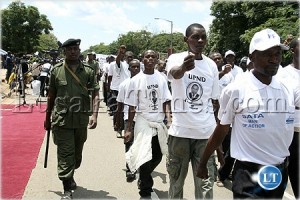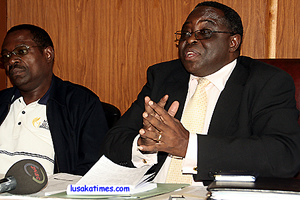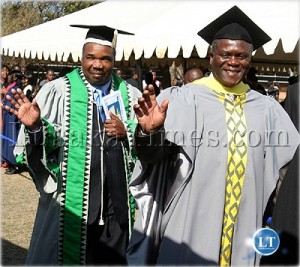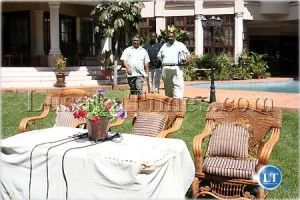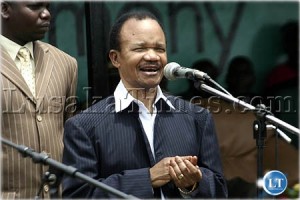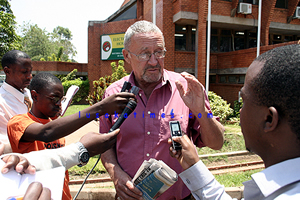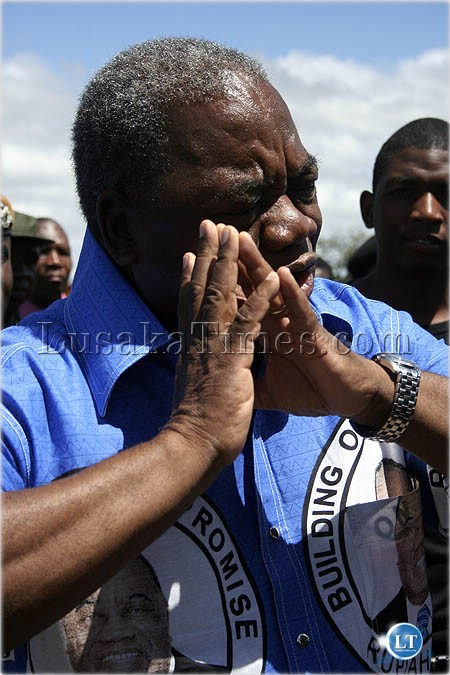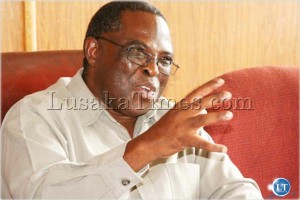It is “half-true” that democracy is taking root in Africa. I owe this “half-truth” to be the end-result of a chain reaction of an African leadership unwilling to let go of power even when time demands that change. Naturally, democracy is a process and Africa is in its infant stage of developing, thus one would need to be careful not to make a quick judgment on its growth. However, “stunted growth” is identifiable even at the infant-stage, and sadly it is clearly manifest in the majority of “democratic” African nations. It is also wholesomely true to say that democracy has several versions, but ultimately the loud majority opinion of the citizens [expressed through various means], should wield a silent but prevailing influence in the direction of the country. Paradoxically, Africa in general and Zambia in particular, our “democracy” is that the minority opinion silently held by the ruling few has a loud and prevailing influence in the direction of the country. These tendencies translate into the unhealthy “symptoms”, that render our democracy to be extremely fragile even in countries classified as “stable” as was evidenced in Kenya and Zimbabwe.[pullquote]There is no limit to what a man can do if he does not mind who gets the credit
[/pullquote]
To validate the said case, as well as identify a possible root cause for this “stunted” growth we will do well to analyze our own country’s current democratic dispensation. We will begin with the deficiencies of our own purported “democratic” political parties that are inherently the front-line institutions for democracy; we Zambians like saying charity begins at home so this is a good place to start. Also keep in mind that Zambia is widely considered to be a formidable democracy at least in the African realm. African politics have a well observed and documented problem with the establishment of democratically inclined institutional values- and this is a trait undeniably evident in our “successful” and major parties in Zambia- whether MMD, PF or UPND.
The “minor” but equally important parties almost always follow suit in this undemocratic route by starting off with a self-appointed (or anointed) “President”, resulting in personality-cult oriented polities. Indeed that is why some comic-witted political analysts refer to such personal parties as brief-case parties- they are after all as personal as a brief case! Comedic opinions aside, the grim and solemn consequence is that not all of these parties fail, but some inevitably survive with these undemocratic tendencies and become the infectious poison to Africa’s democratic growth. This happenstance is definitely one of the foremost negatives surrounding the nature of our democratization, and eventually contributes greatly to the charged stunted growth of the desired democracy. Democratic values in the intra-operation of our parties is a rare commodity, but arbitrary “leadership” is a dime a dozen. In Zambia today, political party leaders do not jostle for leadership positions through transparent democratic processes, but through very open intimidation and intolerance. Resultantly, this crippled version of “democracy” manifests its stunted growth in our elections that are increasingly marred with occasional but serious violence and ever-present vote-buying-all opposite traits of democracy. Some say it’s part of the growth process, but again I reiterate that stunted growth can be diagnosed early, and it will be foolhardy for us citizens to ignore this issue- prevention is better than cure; another favorite Zambian saying.
In summation, it is important that we as responsible citizens and potential leaders of our country demand better from our politicians, by forcing them to democratically legitimize their assumed leadership positions through fair and transparent democratic processes. Do not be mistaken, we do have a reason to be concerned. It will not do for us to nonchalantly continue allowing leaders at the party-level to anoint themselves as Presidents, Chairmen or women of this and that portfolio without due democratic process. This trend that we are unknowingly accepting is inevitably be carried into the annals of state power, with a very tragic experience and end as we have witnessed in our own country.
—


